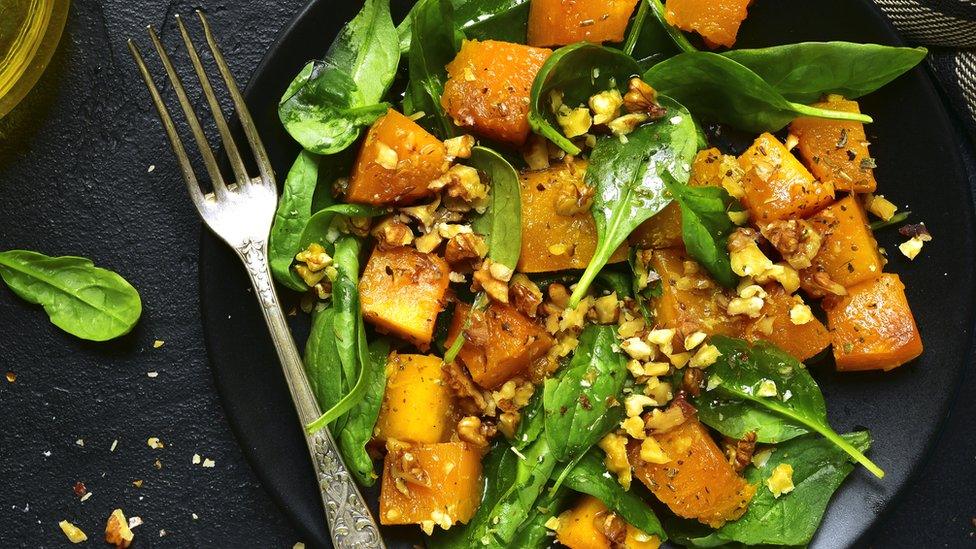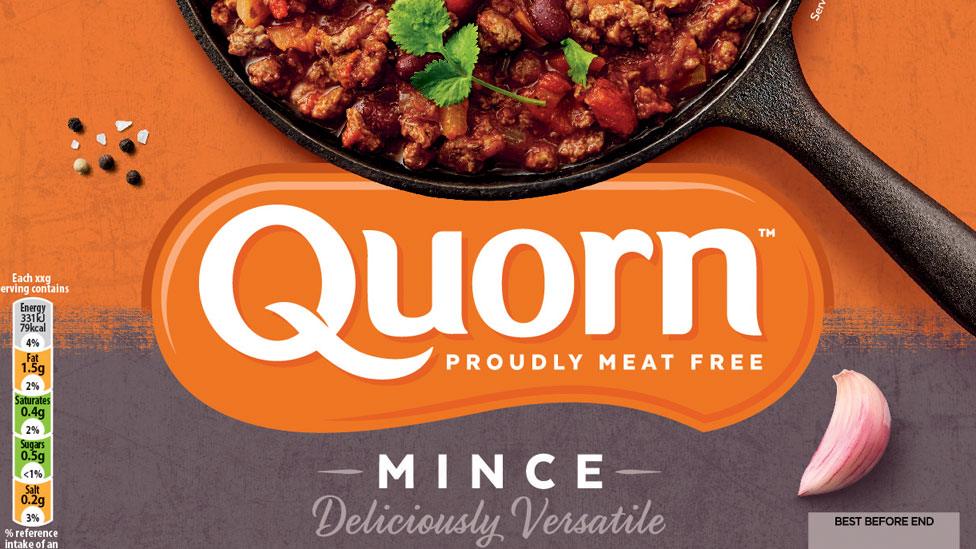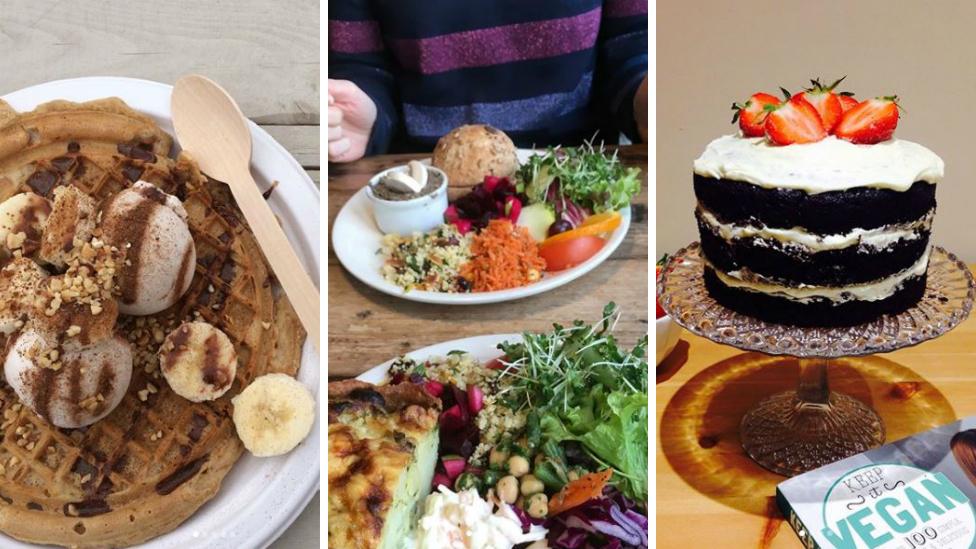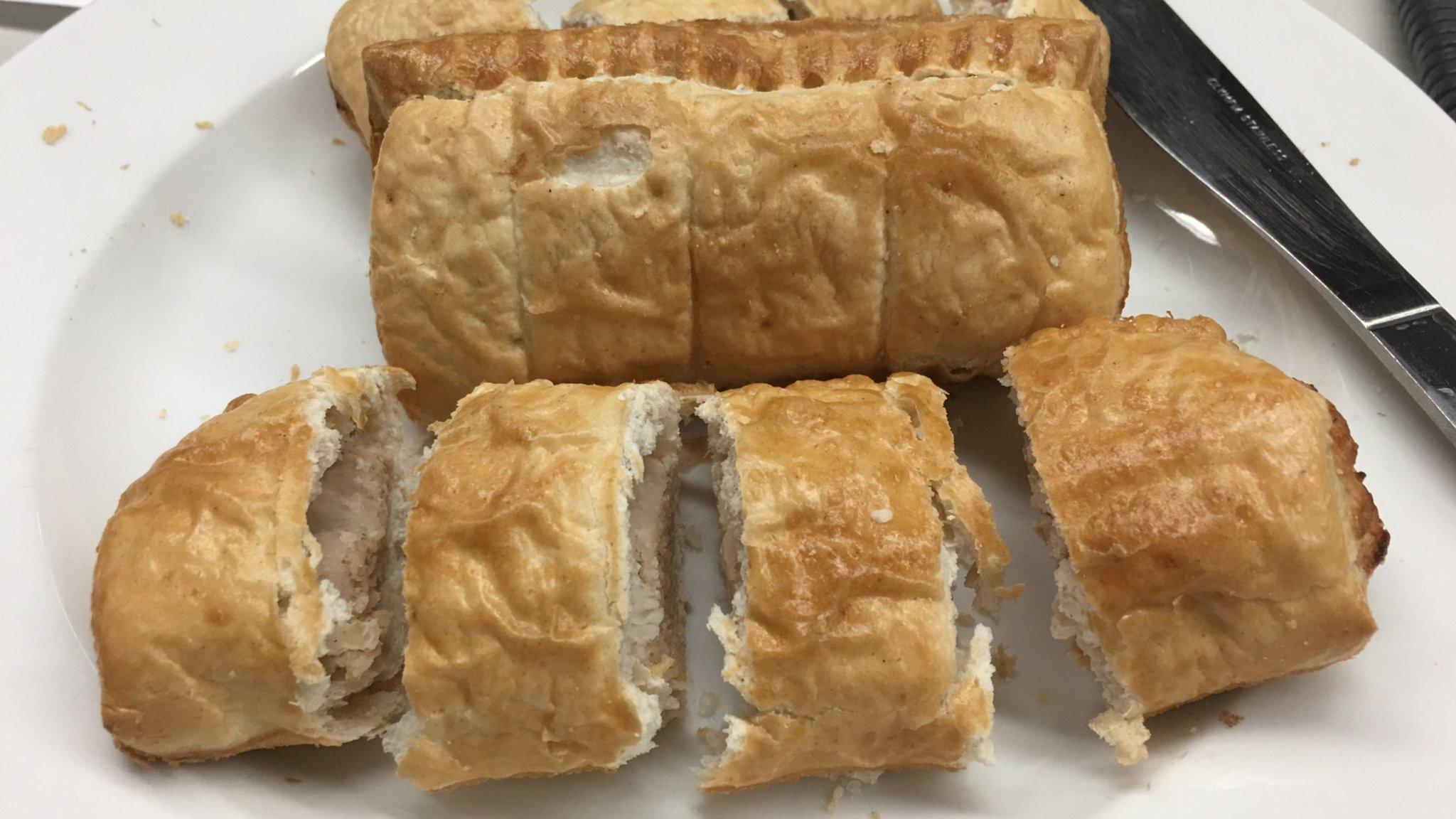Vegetarian and vegan: A quarter of UK dinners have no meat or fish
- Published
- comments

More than a quarter of all evening meals in the UK are vegan or vegetarian, research shows.
In the 12 weeks to the end of January, 29% of them contained no meat or fish, according to Kantar Worldpanel.
Trends like Veganuary (going vegan for January) and "sustained interest" in meat-free diets are affecting habits, the market researcher said.
Meanwhile, Yorkshire-based meat substitute company Quorn Foods saw global sales rise by 16% last year.
The research - collected from a consumer panel of 30,000 households - reflects a year-on-year move to more vegetarian meals (26.9% of evening meals were vegetarian in 2014 and 27.8% in 2016).
Through January, one in 10 shoppers bought a meat-free ready meal, boosting sales by 15% compared to this time last year.
Sales of vegetables, such as spinach and aubergine, are also up 43% and 23% respectively, compared to the last 12 months.
Tesco is one of a growing number of retailers and high street chains looking to cater for the growing appetite for veganism, with new product ranges.
But both the supermarket's dairy and its produce lines - fruit and vegetables - saw the greatest sales growth, according to Kantar.
"Around the world we are seeing a significant increase in meat-reduction diets, including both flexitarianism and veganism," said Quorn Foods CEO, Kevin Brennan.
The company ferments a fungus to produce Mycoprotein.
This is used in all Quorn products from meat-free chicken and mince to burgers and fishless fingers.

But the rise in plant-based food hasn't affected the British meat industry as much as some would expect.
In fact, the Agriculture & Horticulture Development Board (AHDB) says in the short term, meat sales are increasing.
In another report, Kantar's analysis, external shows that 0.9% more meat and poultry and 2.9% more processed meat and poultry (like bacon and sausages) was bought over the 2017 festive period than the previous Christmas.
While the AHDB - funded by farmers and growers - recognises the growth of flexitarians - who are reducing their meat consumption overall - it says most people are still enjoying meat dishes at the weekend or replacing red meat with fish or chicken.
In the long term, it said, meat-eating has slowed, but just 0.2% of meat and fish buyers stopped doing so last year.

You might also like:

- Published30 December 2017

- Published6 December 2017

- Published29 January 2018
